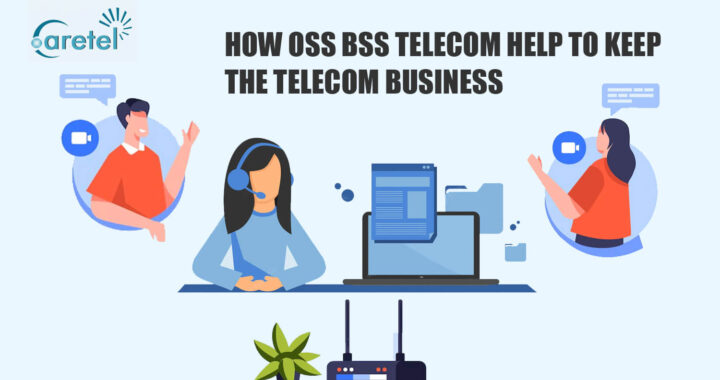Today’s telecom company operation differs significantly from twenty or thirty years ago. Telecoms have no choice but to rely heavily on contemporary OSS BSS telecom systems to maintain their business competitiveness and customer satisfaction due to the complexity of telecom networks. Transformations of OSS and BSS are frequently overlooked and not carried out at the same time as network transformation. Telecom operators have difficulties and ineffective commercialization of new network capabilities when they are absent.
This mismatch is because network departments frequently have more extensive visibility than OSS and BSS departments inside telecom businesses. Network departments typically move more swiftly than OSS and BSS departments, often totally distinct from one another. This is the issue’s root, and telecommunications should consider network transformation alongside OSS and BSS technologies.
A telco may spend billions on the most incredible network technology, but OSS and BSS systems are necessary for this technology to reach the user and be usable.
Why would a telecommunications company spend money on relatively recent OSS and BSS systems? Let’s clarify some misconceptions about what OSS and BSS services truly perform and why telecom operators need them.
So, let’s start from the beginning.
Why OSS BSS telecom system is required for operators to conduct business?
The clients are the most crucial component. Specifically, a region having residents and workers who may be clients. The fixed and mobile network that serves this region is the second component.
The better query is, however, what does a business owner require?
We can all agree that the following factors are necessary for effectively operating a telecom firm, albeit the answer to this issue is more complicated and generates a few more questions:
- The ability to swiftly roll out new, alluring services to assure income sources.
- Ability to precisely and swiftly activate services.
- The capacity to tackle unanticipated technological issues quickly.
- Ability to eliminate needless money wastage and regulate expenditures.
- It is being able to charge clients for the services they use.
- Ability to maintain consumer satisfaction by offering a positive customer experience.
The systems known as Operations Support Systems and Business Support Systems, or OSS and BSS, are responsible for taking care of all of these things.
The OSS software telecom must parallelly adapt to these changes since telecoms constantly change and evolve to keep up with new technology.
What does the telecom term OSS mean?
Let’s respond to this query with a few straightforward examples.
Before creating a new network or redesigning an existing one, network planning is typically the first step. For the network to be efficient and produce the most significant outcomes, meticulous planning is required. To reach every consumer, it could be necessary to traverse a variety of geographic features, including mountains, valleys, islands, villages, and urban metropolis regions. In a room filled with maps, a group of seasoned engineers was required to plan the future network 25 years ago. Today, due to OSS software telecom, everything is automated.
The hub of OSS in telecom is the service operation center.
Consider a base station going offline unexpectedly or construction workers damaging your home’s optical connection. Every telecom company has a division called the Network Operation Center (NOC), where employees can identify even the slightest network disruption.
In contrast to today, when personnel working in a NOC are focused on monitoring services running via the network, Network Operation Centers used to be primarily concerned with monitoring network equipment like routers and set-top boxes. The term “NOC” is no longer often used in the telecom industry; instead, service operation centers (SOC) and service management centers (SMC) are used to describe them. OSS enables the function of such a department, known as service assurance, regardless of language.
How does BSS enable customer- and business-facing telecom activities?
But businesses must also turn a profit. After all, it is a company. They must control their revenue.
While some consumers may use prepaid cards, others may have postpaid subscriptions. A particular number of free minutes or data may be available to some and not to others. No of the consumer’s choices, a system for precise billing and charging must exist. These systems ensure that customers pay the appropriate amount for services consumed at various locations and during multiple periods.
Additionally, automatic up-sale methods are necessary to boost a telecom operator’s income by persuading the client to purchase more services. The data rate may automatically decrease when a client uses up all the Internet traffic allotted in his data plan. Still, at the same time, the consumer may get a text message offering to buy additional data at full speed. The BSS system includes every one of these procedures.
Customers should go to the customer support department if they need to contact their operator, report a service issue, alter their billing address, or simply have a general inquiry regarding services. Customer Relationship Management, or CRM, is the program’s name that manages these procedures and is a component of the BSS system.
Together, OSS and BSS can efficiently manage a network and a business.
These are only a few tasks that telecom billing systems can do. Still, even with just a few examples, it is clear that OSS and BSS systems are essential to any telco since they connect technology and customer experience.
Today’s multi-vendor communications networks are extensive and complicated. To provide a steady income stream for the telco and to maintain customer satisfaction, enormous amounts of data must be handled and evaluated in close to real-time. Globally, there are presently about 25 billion linked devices, and by 2030, there will likely be 50 billion.
Today’s telecom company operation differs significantly from twenty or thirty years ago. The complexity of telecom networks, platforms, and services have surpassed what is understandable to humans. To make the best decisions, keep their business competitive, and satisfy their customers, telecoms have no choice but to rely heavily on current telecom billing vendors integrating powerful analytics and artificial intelligence capabilities.
OSS and BSS provide the most effective methods for managing a network and a company.

